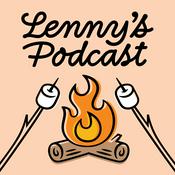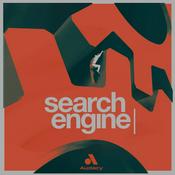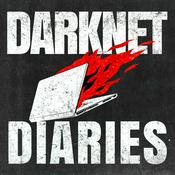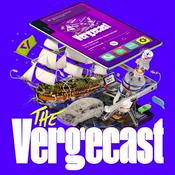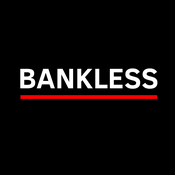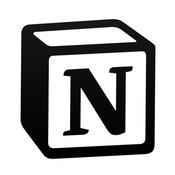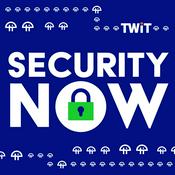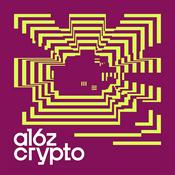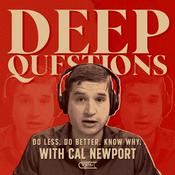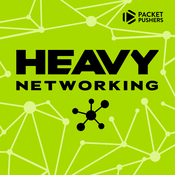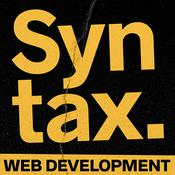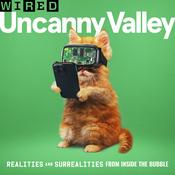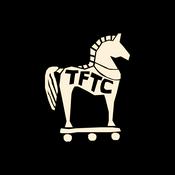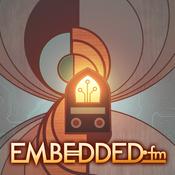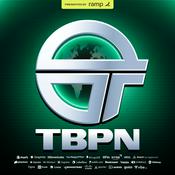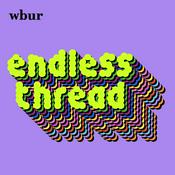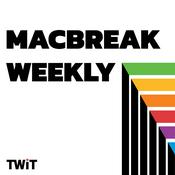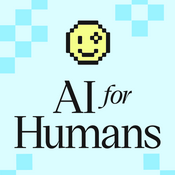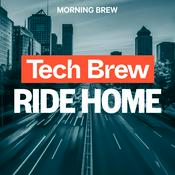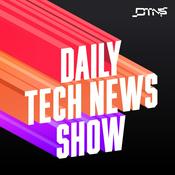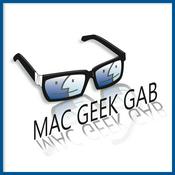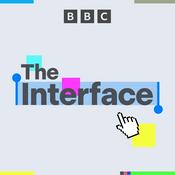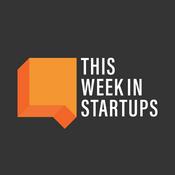281 episodes
- Guest
Nixo Rokish
Panelists
Eriol Fox | Victory Brown
Show Notes
In this live episode of Sustain from Devconnect in Buenos Aires, host Eriol Fox and
co-host Victory Brown sit down with Nixo Rokish, Protocol Support Lead at the
Ethereum Foundation, to unpack how Ethereum’s deeply decentralized governance
actually works in practice. They dive into the nuts and bolts of coordinating 100+
core contributors across 11+ client teams, why neutral facilitation is crucial, how
Ethereum’s upgrade and EIP process avoids “single maintainer” failure modes, and
what lessons other open source projects can steal to make their own governance
more sustainable. The episode concludes with Nixo promoting the EthStaker
project focused on decentralized staking. Hit download now to hear more!
[00:00:38] Nixo explains Ethereum as a rare example of truly decentralized
governance and she describes the Protocol Coordination team.
[00:02:25] Why does this governance model matter for sustainability? Nixo says
most projects rely on 1-2 key people and if they leave, the project can stall or die.
[00:04:09] Eriol asks if anyone resists this decentralized, community-led
governance model. Nixo says active participants are mostly enthusiastic about
the process and the main friction from VCs wanting more control and social
media “ship faster” pressure.
[00:05:51] Eriol talks about money and influence entering open source projects
and Nixo shares that core devs are motivated by building systems for many
people, not concentrating profit.
[00:08:00] Nixo walks through the Ethereum Improvement Proposal (EIP) process.
[00:11:38] Victory asks how they manage consensus with so many people and
companies involved. Nixo explains 11+ client times, only one is within EF, other
are independent companies/nonprofits.
[00:13:36] Eriol reacts to how impressive it is that devs can reach consensus via
facilitation and asks Nixo for advice for smaller open source projects that want to
adopt similar practices. Her key advice is to have a neutral facilitator.
[00:16:13] Nixo shares where you can find her on the internet and she spotlights a
project she used to work at called, EthStaker.
Links
[email protected]
[email protected]
SustainOSS Discourse
SustainOSS Mastodon
SustainOSS Bluesky
SustainOSS LinkedIn
Open Collective-SustainOSS (Contribute)
Richard Littauer Socials
Eriol Fox X
Victory Brown X
Nixo Rokish X
Devconnect-Buenos Aires, Argentina 2025, 17-22 November
Ethereum
Ethereum Foundation
Institute of Forecasting & Planning
EthStaker
Credits
Produced by Richard Littauer
Edited by Paul M. Bahr at Peachtree Sound
Show notes by DeAnn Bahr Peachtree Sound
Logistical support by Tina Arboleda from Digital Savvies
Special Guest: Nixo Rokish. - Guest
Shubhranshu Choudhary
Panelists
Eriol Fox | Victory Brown
Show Notes
In this episode of Sustain, host Eriol Fox and co-host Victory Brown speak with Shubhranshu “Shu” Choudhary. They delve into his work with Democratic Media and its connections to open source technology. Shu discusses the aristocratic nature of current media, the importance of democratizing journalism, and the potential role of open source and decentralized technologies like Web3 and blockchain in making media more inclusive and representative. He shares his vision of community-led journalism, the challenges of sustaining independent media, and the importance of technology in addressing these issues. The conversation highlights the need for democratic platforms, the role of AI in reducing costs, and the potential for blockchain to create financially independent media. Shu also touches on the trust and inclusivity required for effective community journalism. Press download to hear more!
[00:00:33] Shu tells us what his work involves and how it connects to open source software.
[00:02:52] Eriol asks why Shu finds open source, Web3, and decentralization critical to the democratic media work that he’s doing. He explains that media should be commons and inclusive, not controlled by media owners.
[00:05:04] Shu details the challenges and solutions in media representation. He envisions a “News Commission” (like an Election Commission) where everyone can submit stories and AI’s role.
[00:09:27] Eriol recalls a Ugandan project she worked on where farmers reclaimed radio to broadcast their issues. Shu admits he previously associated Web3 only with scammers, but DevConnect showed him serious, positive work. Also, he sees potential for AI and Web3 joint platforms and explains designing for the “last person first.”
[00:16:18] Victory asks about trust in tech, given risks to Shu and his family and wider distrust of Web3/open source. Shu’s trust is multi-layered, during conflict, anonymity is crucial, but in calmer times, trust also means community control.
[00:20:02] Eriol and Victory connect Shu’s ideas to open source governance and community driven tool design. Shu points out that voters/reporters must not be paid per story but should be compensated through impact.
[00:22:19] Find out where to follow Shu and his work on the internet and he stresses this is a humanity-wide challenge, not just a journalists’ one.
Links
[email protected]
[email protected]
SustainOSS Discourse
SustainOSS Mastodon
SustainOSS Bluesky
SustainOSS LinkedIn
Open Collective-SustainOSS (Contribute)
Richard Littauer Socials
Eriol Fox X
Victory Brown X
Devconnect- 2025, Buenos Aires, Argentina, 17-22 November
Ethereum
Ethereum Foundation
Shubhranshu Choudhary LinkedIn
CGNet Swara
Democratic Media
Credits
Produced by Richard Littauer
Edited by Paul M. Bahr at Peachtree Sound
Show notes by DeAnn Bahr Peachtree Sound
Logistical support by Tina Arboleda from Digital Savvies
Special Guest: Shubhranshu Choudhary. - Guest
Mário Havel
Panelists
Eriol Fox | Victory Brown
Show Notes
In this episode of Sustain, host Eriol Fox and co-host Victory Brown are live at Devconnect Conference in Buenos Aires, with Mário Havel, protocol support at the Ethereum Foundation and co-founder of the Bordel Hackerspace in Prague. Mário shares his experience working in protocol support, contributing to the evolution and scalability of Ethereum. He dives into the significance of the Hackerspace 'Bordell' in Prague, discussing its role in fostering a creative and collaborative community focused on free and open source software. Mário also highlights the philosophical underpinnings of free software, emphasizing user freedom and security, and discusses the impact of corporate involvement in open source projects, the complexities of sustaining such initiatives, and the innovative “crowd-loaning” model used to fund their Hackerspace through Ethereum. Hit download now to hear more!
[00:00:40] Mário explains working at the Ethereum Foundation, his role on the protocol support team, the Ethereum Protocol Fellowship, and he introduces Bordel Hackerspace as a community space for hackers, makers, and artists.
[00:04:08] He elaborates on the Hackerspace which is explicitly free and open source software users and contributors and his free and open source software philosophy. Eriol reflects on her own journey learning what “free” really means in this context.
[00:07:54] Mário dives into how scalability, security, and new devs/fellowships link directly to sustainability.
[00:12:48] Mário discusses corporate influence on free/open source. He emphasizes the need for more neutral, community driven structures so projects can accept money without losing independence.
[00:15:25] Eriol contrasts joyful, playful hacker culture with the pressure many projects feel to “look corporate” to survive. Mário shares his personal stance: he avoids proprietary software and doesn’t use banks or KYC, preferring free/open monetary systems like Bitcoin, Ethereum, and Monero.
[00:17:41] Mário details “crowdloaning” smart contracts they built on Ethereum. Eriol suggests many open source projects doing individual donation drives could learn from this crowdloaning model.
[00:21:10] Find out where you can follow Mário and the projects on the internet, and he spotlights the project GrapheneOS, a highly secure, privacy-respecting, easy-to-use mobile operating system.
Links
[email protected]
[email protected]
SustainOSS Discourse
SustainOSS Mastodon
SustainOSS Bluesky
SustainOSS LinkedIn
Open Collective-SustainOSS (Contribute)
Richard Littauer Socials
Eriol Fox X
Victory Brown X
Mário Havel X
Mário Havel GitHub
Devconnect- 2025, Buenos Aires, Argentina, 17-22 November
Ethereum
Ethereum Foundation
Ethereum Foundation Blog
Bordel Hackerspace
Bordel Hackerspace First Ever Pure DeFi Mortgage/Contribute to the crowdloan
GrapheneOS
Credits
Produced by Richard Littauer
Edited by Paul M. Bahr at Peachtree Sound
Show notes by DeAnn Bahr Peachtree Sound
Logistical support by Tina Arboleda from Digital Savvies
Special Guest: Mário Havel. Episode 277: Rynn Mancuso, Maryblessing Okolie & Mo McElaney on Ethicalsource.dev
19/12/2025 | 38 mins.Guests
Rynn Mancuso | Maryblessing Okolie | Mo McElaney
Panelist
Richard Littauer | Eriol Fox
Show Notes
In this episode of Sustain, Richard and Eriol talk with members of the Organization for Ethical Source (OES), Rynn Mancuso, Maryblessing Okolie, and Mo McElaney, about how ethics, licensing, and codes of conduct intersect in open source. They unpack the origins and challenges of the Hippocratic License, the community driven overhaul of Contributor Covenant 3.0, what it really takes to collaborate across borders and cultures, and how OES is now turning its attention to ethical AI, translations and practical resources for communities to make it a safer and more inclusive space. They also suggest ways for listeners to get involved in these important initiatives. Hit download now!
[00:02:17] Rynn gives the elevator pitch on what the Organization for Ethical (OES) is.
[00:04:57] Mo explains the Hippocratic License is modeled on “do no harm” and it’s an open source license.
[00:06:06] Richard wonders if the Hippocratic License is open source since we’re not using OSI’s definition. Mo explains that OES still uses “open source” in a broader, “big tent” sense focused on work done in the open, and Rynn adds why definitions need to evolve.
[00:09:27] Rynn shares rewriting the Contributor Covenant 3.0, starting from their background, to being a limited scope, and getting feedback from translators that language was too American/Western and 3.0 needed a broader cultural fit.
[00:15:12] Maryblessing was brought in to lead v3.0 from an African, non-US perspective and to make the process community driven. She tells us what’s new in the Contributor Covenant 3.0.
[00:19:43] The discussion covers how they all worked together. It was a highly collaborative, consensus driven process where anyone could propose edits. They talk about how long it took, not work entirely on GitHub, and why not everything was public.
[00:24:59] We hear about some adoption challenges for codes of conduct for small projects and enterprises.
[00:28:53] Rynn, Mo, and Maryblessing touch on how they are approaching ethical AI work, they share options to support OES, how to get involved, and translation needs.
Quotes
[00:12:32] “It was a very limited scope, and we always designed it to work on the internet and be for open source projects.”
[00:13:23] “I would get these problems that really had to do with caste, but nobody would say anything about caste.”
[00:16:37] “This new version also emphasizes restorative justice, and we’re keen on using inclusive languages.”
[00:17:06] “We’re making progress on bringing in African translation.”
[00:17:38] “One of the things we did with the new website was to include the CC3 builder which was going to help make it easy for people to adapt the code of conduct.”
[00:21:37] “Every bit of feedback we got, we took it seriously, we talked about it.”
[00:22:13] “It took is a year and six months to do the entire thing, to make sure people were available. It took that long because we wanted to make sure we were incorporating every feedback.”
[00:23:14] “We do not do everything in the open on GitHub. One reason is structural. GitHub is not great at document management. Another reason we do that is we’ve received a lot of harassment form groups on the internet that were frankly invested in being able to cause trouble for a lot of people.”
[00:29:14] “We’re in the early stages of considering how we could approach ethical AI.”
Spotlight
[00:33:12] Mo's spotlight is for more folks to get involved with this project and other projects through the OES.
[00:33:34] Rynn’s spotlight is a shoutout to the folks at IBM and RedHat and Dev/Mission and JVS where they volunteer.
[00:35:25] Maryblessing’s spotlight is all the amazing people that helped put together the Contributor Covenant v.3.: Greg Cassel, Coraline Ada Ehmke, Gerardo Lisboa, Rynn Mancuso, Mo McElaney, Maryblessing Okolie, Ben Sternthal, and Casey Watts.
[00:36:11] Eriol’s spotlight is the OpenSSF Working Group on Securing Software Repositories.
[00:36:44] Richard’s spotlight is a fun paper called, Paradoxes of Openness: Trans Experiences in Open Source Software by Hana Frluckaj, Nikki Stevens, James Howison, and Laura Dabbish.
Links
SustainOSS
[email protected]
[email protected]
SustainOSS Discourse
SustainOSS Mastodon
SustainOSS Bluesky
SustainOSS LinkedIn
Open Collective-SustainOSS (Contribute)
Richard Littauer Socials
Eriol Fox X
Rynn Mancuso LinkedIn
Maryblessing Okolie LinkedIn
Mo McElaney LinkedIn
Organization For Ethical Source (OES)
OES- What We Do
OES-What We Believe
Donate-The Organization for Ethical Source (Open Collective)
Contributor Covenant
Contributor Covenant 3.0 Code of Conduct
Code of conduct enforcement guidelines (MDN Web Docs)
Coraline Ada Ehmke
Ethical Source- Beacon
Adopt Contributor Covenant
Resources for Community Moderators
Dev/Mission
JVS (Jewish Vocational Services)
Techtonica
OpenSSF Working Group on Securing Software Repositories
Paradoxes of Openness: Trans Experiences in Open Source Software (ACM Digital Library)
Credits
Produced by Richard Littauer
Edited by Paul M. Bahr at Peachtree Sound
Show notes by DeAnn Bahr Peachtree Sound
Special Guests: Maryblessing Okolie, Maureen Mcelaney, and Rynn Mancuso.- Guests
Dawn Wages | Loren Crary
Panelist
Richard Littauer
Show Notes
In this episode of Sustain, Richard Littauer talks with Dawn Wages, former Chair of the Python Software Foundation board and Loren Crary, Deputy Executive Director of the PSF, about how the PSF sustains Python and its community, governance, fundraising, and events like PyCon US, and why they ultimately turned down a $1.5M NSF grant rather than accept new anti-DEI conditions. They walk through what the grant was for, how the decision unfolded, the financial and ethical risks involved, and the overwhelming community response in donations and support, ending with a call to participate in the PSF fundraiser and submit talks to PyCon US 2026. Press download now to hear more!
[00:02:41] Dawn explains she just finished her term as Chair at the PSF Board, previously served as Treasurer, and that board seats are elected volunteer toles with three-year terms.
[00:03:40] Loren describes her job as Deputy Executive Director, #2 to ED Deb Nicholson. She leads fundraising and revenue strategy, handles internal operations and strategic planning, and she clarifies that the Python Steering Council steers the language itself and mentions PyCon US will be in Long Beach, CA May 2026.
[00:05:38] Dawn shares a personal story how PSF funding and local Python user group helped her start in Python a decade ago and encourages listeners to donate and use company matching.
[00:06:57] Loren speaks about sponsors and individual donors and plugs the fundraiser and the “cute snake thermometer” on the donate page.
[00:08:00] Richard, as a board member of Python New Zealand, underscores PSF’s support for Python user groups and conferences. He then pivots to ask about strategy where Loren describes how the board leads strategy.
[00:13:34] Dawn reflects on learning to chair the board for the first time, praising staff expertise, and she describes the ‘flywheel’ model where staff and board collaborate closely, with staff often joining board meetings to co-develop strategy.
[00:15:18] Loren highlights the PSF board and representation.
[00:16:59] Richard gives a special shout-out to Phyllis Dobbs as one of the “unsung heroes” of open source, noting her work with OSI and Deb in the past.
[00:17:26] The convo turns to the NSF Safe OSE program and what happened with the large grant the PSF was awarded and then declined. Loren details everything that happened and gives a shout-out to Seth Larson, whom she collaborated with.
[00:29:00] Loren reads the key clause that PSF would need to affirm, and the board ultimately made the call that it was too risky to their mission to accept the terms.
[00:31:42] Dawn explains the board’s decision to withdraw and Loren notes that no one on the board or staff ever floated “dropping DEI to take the money.”
[00:33:55] Dawn points to Python’s reputation as a welcoming, diverse community and DEI is portrayed as “lifeblood,” not an optional extra.
[00:35:03] What happened after they said they weren’t taking the money? Dawn and Loren recount an outpouring of support after the public statement, and we find out how much money the fundraiser has made so far along including an anonymous donation.
[00:38:33] Dawn zooms out to decades of conversations about funding open source, arguing that individual donors and major AI companies profiting from Python should be contributing at scale.
[00:41:20] Richard reinforces the ongoing donation, and Loren plugs the PyCon US Call for Proposals (open through December 19) with new AI and security tracks and invites listeners to submit.
Quotes
[00:07:09] “If you want to know what a nonprofit does, look at who their funders are and that’s who they’re working for.”
[00:12:07] “The board sets a strategy, but there needs to be a ‘flywheel’ from the staff to keep things like that going.”
[00:18:45] “We dipped our toes into grant funding, and we thought that would be a great way to make our work more sustainable.”
[00:32:40] “The $1.5 million is not net worth putting the future health and safety of the language in the organization in jeopardy.”
[00:32:58] “I am proud that at no point did anyone float: What if we just stopped doing everything DEI and take the money?”
[00:38:09] “I like my boss to be the users.”
[00:38:41] “We’ve been talking about what it means to fund open source for decades…I think this is an interesting arc that we’re experiencing. I’m hoping that the numbers will have two or three commas from individual donations.”
Spotlight
[00:42:15] Richard’s spotlight is Phyllis Dobbs.
[00:42:26] Dawn’s spotlight is PyScript.
[00:42:42] Loren’s spotlight is The Carpentries.
Links
SustainOSS
[email protected]
[email protected]
SustainOSS Discourse
SustainOSS Mastodon
SustainOSS Bluesky
SustainOSS LinkedIn
Open Collective-SustainOSS (Contribute)
Richard Littauer Socials
Dawn Wages Website
Loren Crary LinkedIn
Python Software Foundation
PSF Donate
PyCon US 2026, Long Beach, CA
The Philadelphia Python Users Group (PhillyPUG)
Safety, Security, and Privacy of Open Source Ecosystems (Safe-OSE)
PSF Welcomes New Security Developer in Residence with Support from Alpha-Omega
Seth Michael Larson-GitHub
Seth Larson Blog post: I am the first PSF Security Developer-in-Residence
Python Software Foundation turns down $1.5 million NSF grant because of the anti-DEI strings attached (The Verge)
The PSF has withdrawn a $1.5 million proposal to US government grant program (PSF Blog post)
PSF Board Meeting Minutes Archive (Python)
Phyllis Dobbs
PyScript
The Carpentries
Credits
Produced by Richard Littauer
Edited by Paul M. Bahr at Peachtree Sound
Show notes by DeAnn Bahr Peachtree Sound
Special Guests: Dawn Wages and Loren Crary.
More Technology podcasts
Trending Technology podcasts
About Sustain
Sustain brings together practitioners, sustainers, funders, researchers and maintainers of the open source ecosystem. We have conversations about the health and sustainability of the open source community. We learn about the ins and outs of what ‘open source’ entails in the real world. Open source means so much more than a license; we're interested in talking about how to make sure that the culture of open source continues, grows, and ultimately, sustains itself.
#mcembedsignup{background:#fff; clear:left; font:14px Helvetica,Arial,sans-serif; width:100%;}
/* Add your own Mailchimp form style overrides in your site stylesheet or in this style block.
We recommend moving this block and the preceding CSS link to the HEAD of your HTML file. */
Newsletter
Podcast websiteListen to Sustain, Lenny's Podcast: Product | Career | Growth and many other podcasts from around the world with the radio.net app
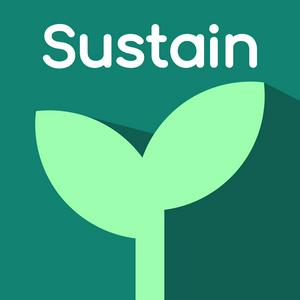
Get the free radio.net app
- Stations and podcasts to bookmark
- Stream via Wi-Fi or Bluetooth
- Supports Carplay & Android Auto
- Many other app features
Get the free radio.net app
- Stations and podcasts to bookmark
- Stream via Wi-Fi or Bluetooth
- Supports Carplay & Android Auto
- Many other app features


Sustain
Scan code,
download the app,
start listening.
download the app,
start listening.

